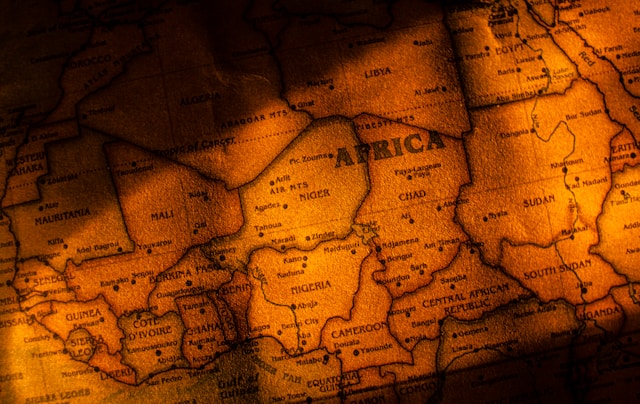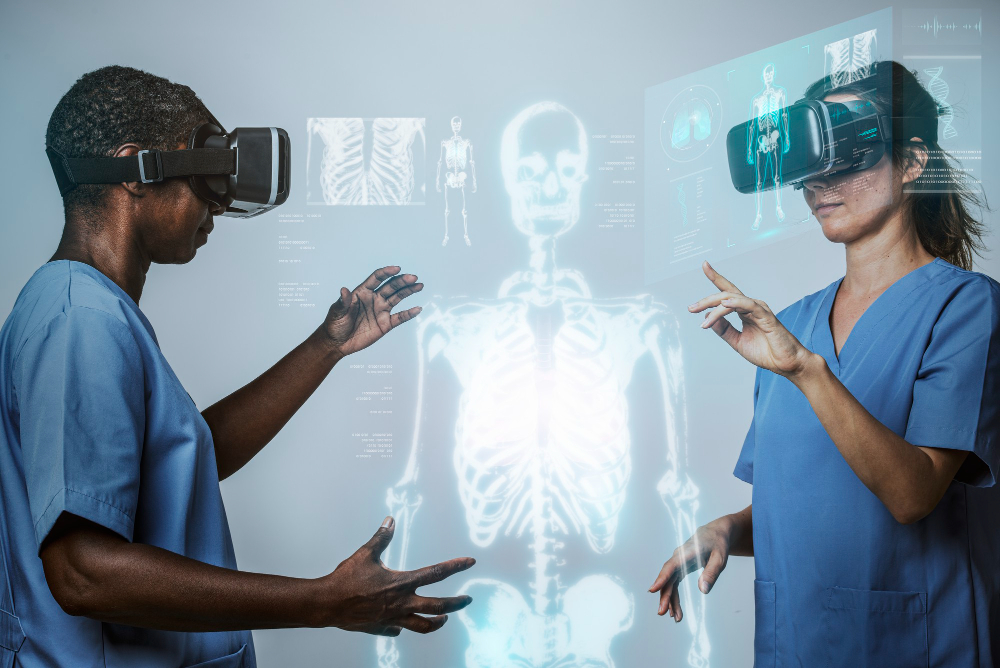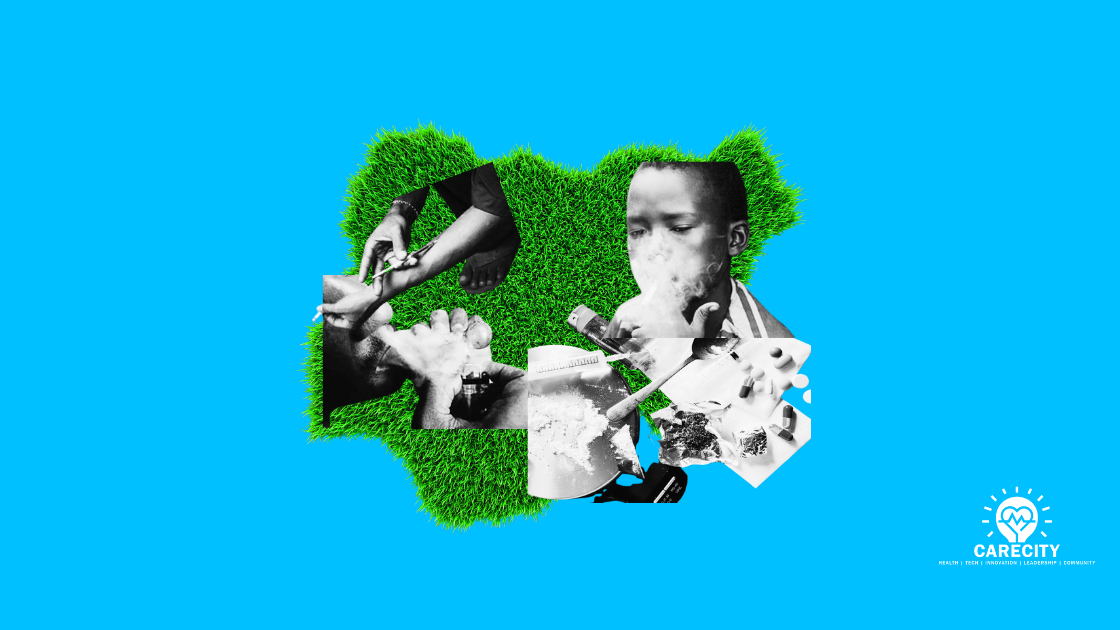Africa’s healthcare ecosystem is at the cusp of a massive digital revolution, thanks to local startups’ innovative use of artificial intelligence to solve some of the continent’s most pressing healthcare challenges.
These innovative startups are leveraging artificial intelligence to solve real problems, such as the shortage of medical supplies, slow diagnostics, and the need for personalised treatments. They are making healthcare more accessible for millions across Africa.
This article will discuss some of Africa’s healthcare startups, where they are based, who founded them, and how they use AI to transform healthcare in Africa.
African Startups Leveraging AI To Transform Healthcare
Zipline
Zipline, founded by Keller Rinaudo, William Hetzler, and Keenan Wyrobek, operates in Rwanda and Ghana. It uses drones to transport medical supplies to remote locations. Its AI-driven logistics platform coordinates the drone flights, ensuring the timely delivery of crucial medical resources.
The drones are equipped with GPS and other navigation sensors, which help reduce the time and cost typically involved in traditional delivery methods. Zipline’s innovative approach plays a vital role in delivering blood, vaccines, and other lifesaving supplies to areas that are hard to reach, ultimately significantly improving healthcare accessibility in these regions.
LifeBank
LifeBank, founded by Temie Giwa-Tubosun and located in Nigeria, utilises an AI-powered platform to facilitate the connection between hospitals and essential medical supplies such as blood and oxygen.
Their innovative platform tracks the availability and location of these critical supplies, using AI to efficiently match hospital requests with the nearest sources and coordinate swift delivery. It significantly reduces the time needed to access and transport lifesaving supplies and ultimately ensures that hospitals have timely access to the vital resources they require.
LifeBank’s approach revolutionises the distribution of medical supplies by leveraging technology to streamline the process of locating and delivering blood and oxygen to hospitals.
With their AI-powered platform, they are making substantial strides in enhancing the efficiency and effectiveness of healthcare supply chains, ultimately contributing to improved outcomes for patients in need.
Baobab Circle
Baobab Circle, founded by Dr. Precious Lunga in Kenya, has developed the Afya Pap app to provide personalised health advice and disease management plans for chronic conditions like diabetes and hypertension.
The app utilises AI to analyse user data and offer tailored health recommendations.
Users can input their health information, receive guidance on managing their conditions, including diet, exercise, and medication reminders, and even access remote consultations with doctors, making healthcare more accessible, especially to those in remote areas.
Dr. CADx
In Zimbabwe, Dr CADx, founded by Gift Gana, is pioneering the development of an AI-powered diagnostic tool to assist radiologists and doctors in interpreting medical images more accurately.
Using machine learning algorithms, the tool analyses medical images to detect abnormalities, including tumours and fractures. Dr CADx aims to enhance diagnostic accuracy and facilitate early detection of diseases like cancer, particularly in areas with a shortage of trained medical professionals.
This technology holds significant promise for improving healthcare outcomes in underserved regions with few trained and experienced radiologists.
mPharma
mPharma, founded by Gregory Rockson, Daniel Shoukimas, and James Finucane, operates in multiple African countries, with its headquarters in Ghana.
The company primarily focuses on using AI technology to manage pharmaceutical inventory for pharmacies and hospitals.
mPharma tracks medication inventory levels and predicts future needs using advanced AI algorithms, thereby preventing medication shortages and ensuring consistent access to necessary drugs for patients.
This efficient inventory management also helps reduce waste and cut costs for healthcare providers.
Opportunities & Possibiities

Though there’s very little study on the impact and extent of AI adoption in Africa’s healthcare ecosystem, there is still a lot of work going on despite the harsh conditions entrepreneurs, leaders, and innovators face in Africa.
The most common AI tools used in Africa are deep learning neural networks applied in medical imaging, Adaptive Neuro-Fuzzy Inference Systems, and E-algorithms.
It’s true that the use of AI in Africa’s healthcare ecosystem is still in its developmental phase, yet there’s potential to innovate and create life-changing healthcare solutions; however, Africa needs to lay down the proper foundation today to make building AI solutions in healthcare easy and effective.
With a global awakening to this novel technology (though AI has been with us for decades now), and as global technological behemoths ride the AI wave to unimaginable impact and gigantic profits, like Nvidia, Africa must not be left behind.
Though there are a lot of issues bothering around ethics and regulation, the industry, which many thought was a mere technological trend or a fading fad compared to cryptocurrencies, NFTs or even quantum computing, is becoming a universe of its own right before our eyes!
And this revival, this sudden global obsession with AI made famous by entrepreneurs and innovators like Sam Altam and his OpenAI, which is transforming whole industries, inside-out, is definitely going to have its effects on how healthcare is delivered, designed, practised and regulated, all over the world and in Africa.
Conclusion
Africa presents a unique, rich landscape for developing AI solutions in healthcare (and other fields).
Our growing youth population and the growing penetration of internet connectivity, a big thank you to entrepreneurs and innovators like Elon Musk (his Starlink is taking internet connectivity to remote parts of Africa isolated from the global internet grid).
This is not denying apparent challenges, the major being the approach of the government towards new technologies.
So far, only three countries in Africa —Mauritius, Egypt, and Kenya—have dedicated national strategies to the use of AI.
It’s even more delicate in healthcare, where there are stricter rules on how patient data is used by computer systems or super-intelligent algorithms to prevent bias, data poisoning, deep fakes, and deliberate manipulation by bad actors.
Stay in the conversation. Follow us for more. If you want to come closer, find us on Substack.





